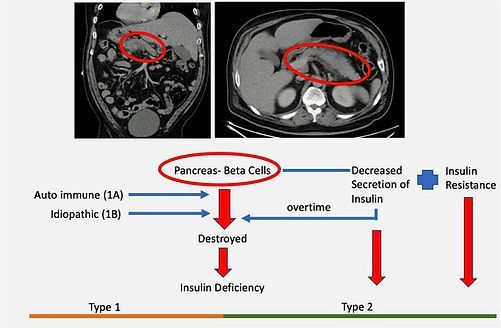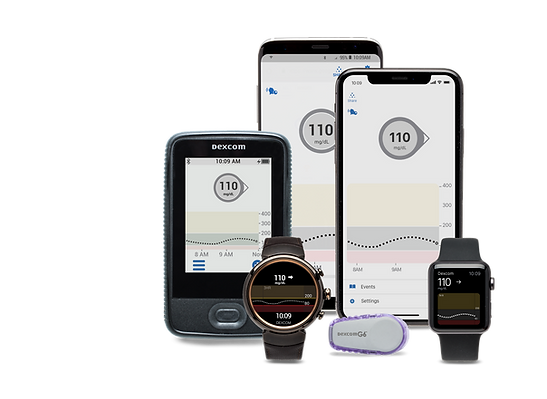Diabetes Management and Care
Request Appointment
Hero Request Form
Effective Diabetes Management for a Healthier Life
Managing diabetes effectively requires a blend of comprehensive evaluations, advanced blood glucose monitoring, and precise insulin pump management. At ARKA Endocrine Clinic, located in Sugar Land, TX, our goal is to ensure that every patient receives personalized care tailored to their unique needs. Our commitment to evidence-based treatments and extensive medical knowledge make us a reliable partner in your diabetes management journey. Reach out today to learn how we can support you.
When to Seek Professional Diabetes Management
Recognizing the right time to contact a diabetes management professional is crucial. If you identify with any of the following situations, it may be time to get in touch with ARKA Endocrine Clinic:
- Uncontrolled blood glucose levels despite medication
- Experiencing frequent hypoglycemic or hyperglycemic episodes
- Difficulty managing insulin pump settings
- Developing complications like neuropathy, retinopathy, or nephropathy
- Needing a comprehensive diabetes care plan
- Struggling with lifestyle changes related to diabetes management
If any of these symptoms resonate with you, contact ARKA Endocrine Clinic for expert diabetes management.
Benefits of Professional Diabetes Management
Managing diabetes effectively can be challenging, but the advantages of working with a specialist at ARKA Endocrine Clinic are substantial. Here’s what you can expect from our services:
- Tailored treatment plans
- Expert guidance on insulin pumps and delivery devices
- Continuous glucose monitoring system recommendations
- Reduced risk of diabetes-related complications
- Enhanced overall health and wellness
- Access to the latest treatments and technologies
- Support from a friendly and knowledgeable staff
Contact us to learn more about how we can assist you in managing your diabetes effectively.
Reasons to Choose ARKA Endocrine Clinic
There are numerous reasons why ARKA Endocrine Clinic stands out as the right choice for diabetes management. Our commitment to exceptional care and patient satisfaction is unparalleled. Consider the following:
- Endocrine specialist expertise
- Personalized and compassionate care
- Use of evidence-based treatments
- Comprehensive understanding of hormone disorders
- Partnership with top hospitals like Houston Methodist and Memorial Hermann
- Convenient appointment scheduling within one week
- Wide acceptance of most insurance plans
- Welcoming new patients with open arms
Connect with ARKA Endocrine Clinic today to ensure you receive the dedicated care you need.
Contact Us
Ready to take control of your diabetes? Contact ARKA Endocrine Clinic in Sugar Land, TX to get the dedicated care you deserve. We look forward to assisting you with all your diabetes management needs.
FAQs
Why do we get diabetes mellitus (DM)?
Diabetes mellitus occurs when the pancreas, an organ located behind the stomach, does not produce enough insulin or when the body cannot effectively use the insulin it produces. Insulin is a hormone that helps glucose enter cells, where it is used for energy or stored for future use. Insufficient insulin or the body's inability to use it leads to elevated blood glucose levels.
What are Type 1 and Type 2 diabetes mellitus?

Type 1 diabetes is an autoimmune condition where the body attacks insulin-producing cells in the pancreas, leading to little or no insulin production. Type 2 diabetes occurs when the body becomes resistant to insulin or when the pancreas cannot produce enough insulin to meet the body's needs.
What are the common symptoms of DM?
- Excessive thirst, hunger, and urination
- Fatigue, dehydration, and weight loss
What is the screening test for diabetes?
Pre-Diabetes:
- Fasting plasma glucose: 100-125 mg/dL
- OGTT (Oral Glucose Tolerance Test): 140-199 mg/dL
- HbA1c: 5.7-6.4%
Diabetes Mellitus:
- Fasting plasma glucose: >126 mg/dL
- OGTT with 2-hour plasma glucose: ≥200 mg/dL
- HbA1c: ≥6.5%
- Classic symptoms of hyperglycemia or crisis with random plasma glucose: ≥200 mg/dL
What is HbA1c?
HbA1c measures your average blood sugar level over the past three months.
- A1C < 5.7% is normal
- 5.7 - 6.4% indicates prediabetes
- ≥ 6.5% indicates diabetes
How do I manage DM?
- Intense lifestyle modifications and weight loss
- Oral medications
- Insulin therapy
What are some of the complications of DM?
- Eye: Retinopathy (damage to blood vessels in the back of the eye)
- Heart: Coronary artery disease (early blockage of heart blood vessels)
- Kidney: Nephropathy (kidney failure), albuminuria (protein spillage in urine)
- Nerves: Neuropathy (pain, tingling, numbness, burning, skin ulcers)
- Brain: Stroke
What is diabetic ketoacidosis?
Diabetic ketoacidosis is a severe, life-threatening complication of diabetes characterized by hyperglycemia, ketosis, and severe dehydration. It can lead to a coma and often requires hospitalization, typically in an intensive care unit, for intravenous insulin treatment. It is often the initial presentation of Type 1 diabetes.
What is gestational diabetes?
Gestational diabetes is diabetes diagnosed for the first time during pregnancy. It can cause complications such as pre-eclampsia (uncontrolled high blood pressure), premature delivery, large babies (risk of clavicle fractures, nerve injuries during delivery, and high risk for a c-section), and stillbirth. Early screening (24-28 weeks of pregnancy) and controlling blood glucose can prevent most complications.
What is continuous glucose monitoring?

Continuous glucose monitoring (CGM) tracks your blood glucose levels throughout the day, providing a comprehensive view of glucose trends. Unlike traditional fingerstick methods that offer a snapshot, CGM helps you balance your day by monitoring trends and adjusting medications, diet, and activity. It includes alarms for dangerously high or low glucose levels and stores data that can be downloaded by your physician for better management of your care.


Share On: